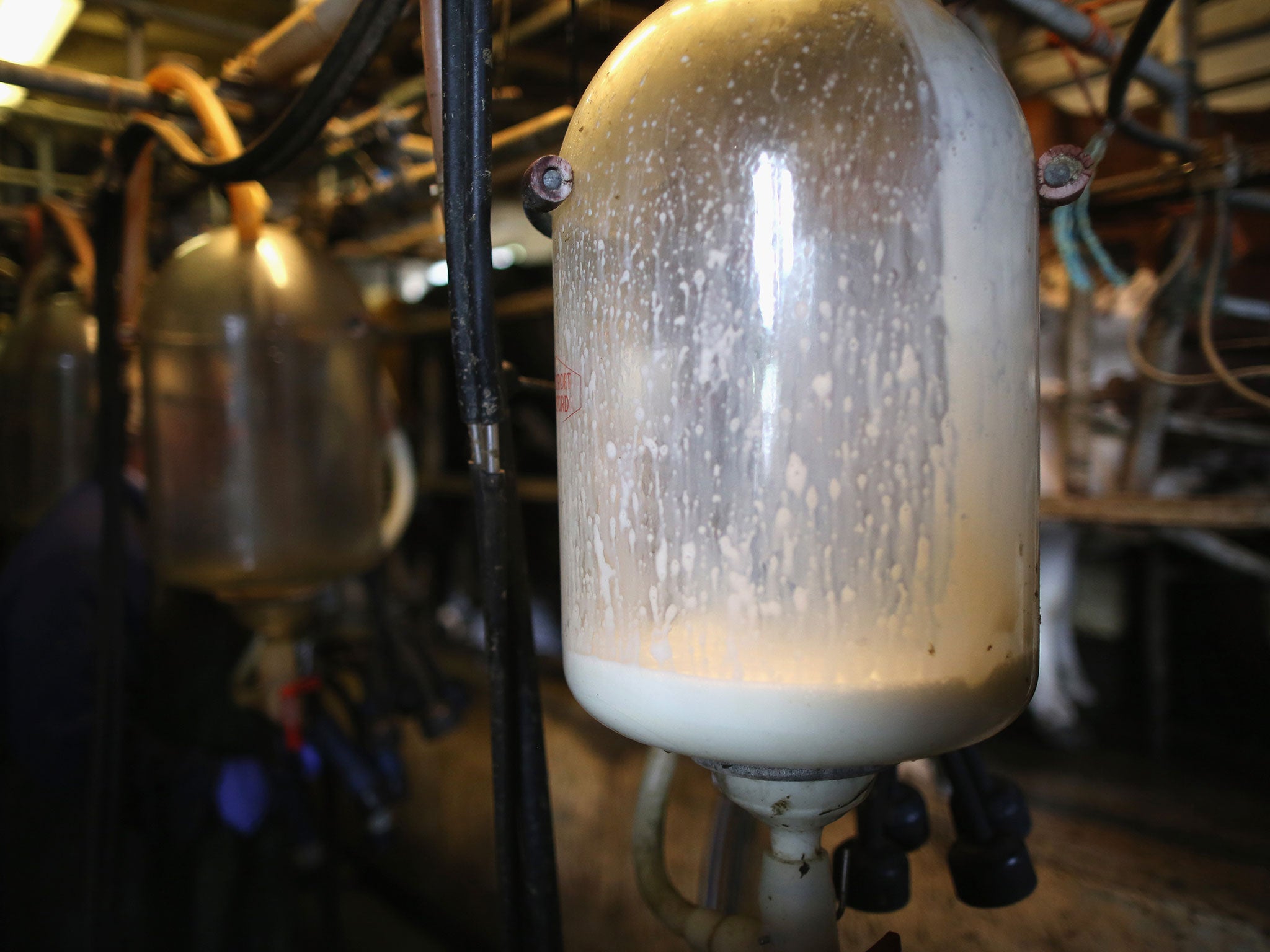British farm produce could soon disappear from UK supermarkets if retailers keep driving down prices, says union president
Meurig Raymond said the country would become increasingly beholden to overseas producers unless drastic action was taken to help farms survive

Your support helps us to tell the story
From reproductive rights to climate change to Big Tech, The Independent is on the ground when the story is developing. Whether it's investigating the financials of Elon Musk's pro-Trump PAC or producing our latest documentary, 'The A Word', which shines a light on the American women fighting for reproductive rights, we know how important it is to parse out the facts from the messaging.
At such a critical moment in US history, we need reporters on the ground. Your donation allows us to keep sending journalists to speak to both sides of the story.
The Independent is trusted by Americans across the entire political spectrum. And unlike many other quality news outlets, we choose not to lock Americans out of our reporting and analysis with paywalls. We believe quality journalism should be available to everyone, paid for by those who can afford it.
Your support makes all the difference.British farm produce could become a rare sight in UK supermarkets if major retailers keep driving down prices of staples such as milk and lamb, the president of the National Farmers Union has warned.
As Britain’s four major farming unions held an emergency summit in London to discuss the crisis in the industry, Meurig Raymond said the country would become increasingly beholden to overseas producers unless drastic action was taken to help farms survive.
“If the farmers exit the industry, then British food may not be on the supermarket shelves in months and years to come. We will see our self-sufficiency in food fall even further. That’s not what British consumers want,” Mr Raymond said.
Milk prices had already been falling steadily, but dove a further 30 per cent in the past year as supermarkets engaged in a price war over dairy products. Following the latest cuts, UK farmers now receive just over 23p for a litre of milk – compared to the 30 to 32p it costs them to produce – while energy and grain costs have risen considerably in recent years.
The price of lamb has also fallen, with good quality, new season lamb costing at least £15 per animal less than they did a year earlier, Mr Raymond said.
“I’ve been farming for 45 years and this is the worst crisis I’ve known, particularly in the dairy sector and the lamb sector,” he said.
“For lots of farmers there’s a cash flow issue. They’re finding it difficult to pay bills.”
Following their summit, the UK’s four farming unions called on ministers, major retailers, the discount chains and “key people in the supply chain” to meet with them to discuss how to give farmers “fairer and more transparent contracts”.
In a joint statement, they said: “We would urge farm ministers across the UK to meet urgently. They need to admit that something has gone fundamentally wrong.”
“Government needs to take action to ensure that contracts to all farmers are longer-term and fairer… [It] also needs to urgently ensure that rules are put in place so that it is clear which products are imported and which are British,” they added.
The meetings came amid growing protests by farmers at the price of milk. These have included taking cattle into supermarkets and blockading distribution centres, as well as stripping shops’ shelves of their cartons.
But Mr Raymond asked farmers to be careful not to alienate consumers with any action. “There are farmers out there in a desperate situation. And these are the ones who are demonstrating – and I can understand that. It’s important we don’t alienate our customers,” he said.
A spokesman for the Department for Environment, Food and Rural Affairs said: “We maintain a regular dialogue with farming unions and industry. We look forward to discussing these issues with them further.”
A British Retail Consortium Spokesman added: “The retail industry pays a fair price with individual retailers using different payment models. We understand the current frustration of farmers but it is wrong to blame the retailers.”
Join our commenting forum
Join thought-provoking conversations, follow other Independent readers and see their replies
Comments